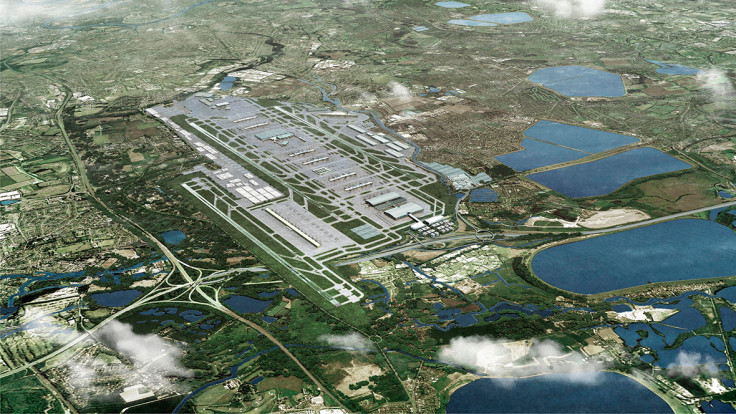Europe's infrastructure challenge in light of Brexit uncertainty
UK ports, which are highly reliant on imports, and UK airports could be most exposed to the consequences of Brexit.

I have worked in the global infrastructure market for over 25 years and have seen many different types of deals and how to finance them. So its a pleasure to be asked to offer my insight on the infrastructural landscape to the readers of IBTimes UK.
My career started at NatWest, as part of their Project Finance team, where I was involved in many key deals in the UK such as Eurotunnel, early North Sea Oil and Gas, the first independent power projects and the first cable/Sky TV projects to name a few.
I also led a team at NatWest/RBS, which provided long-term financing for the UK government's fledgling Private Finance Initiatives (PFI) market, also known as Public Private Partnerships (PPP). In this way, new schools, hospitals and roads were built.
As the deals grew bigger, the bond market was required to provide the long-term capital, and as the nature of project finance funding evolved, this led me to a role at monoline insurer, Ambac Assurance.
When the PFI/PPP market in the UK slowed, the renewable energy market developed, which provided opportunities for project finance practitioners to lend to wind, solar and biomass or waste to energy transactions during which time I worked at Investec Bank.
An evolving landscape
If I compare the market now to when I first started, where transactions were primarily financed by loans from a syndicate of lending banks, what has changed dramatically is the variety of financing options for project finance.
This extends well beyond traditional bank lending to privately placed bonds, publicly rated bonds and development bank funding such as at the European Investment Bank (EIB) right through to funding from the UK's retail bond market.
At Fitch Ratings, I oversee credit ratings on a wide range of infrastructure transactions. What I hear from many market participants is that there are not enough transactions across Europe to satisfy the level of capital available from both infrastructure equity and infrastructure lenders. Conversely, many governments will tell you there are plenty of opportunities, but few investors who like them.
It is true that government budgets are tight, which is constraining certain transaction types. However, the market remains very active, be it in new transactions, transactions from mergers and acquisitions activity, transactions from privatisations of infrastructure assets, or businesses restructuring to be more "infrastructure like".
For our ratings portfolio in Europe, the outlook for sectors such as energy, water and transport is mostly stable, whereas for what we call whole business (securitisations of assets such as pubs, leisure centres and football stadiums) the outlook is negative. A common theme here is the impact Brexit will have.
Those Brexit jitters
For renewable energy, it may affect projects still in the pipeline. We believe EU environmental policy will remain largely intact following the UK's referendum, but the lack of tangible expansion plans for onshore wind and solar capacity may not be conducive to growth over the coming years. However, large, strategically important renewables projects might gain government support.
For transport, post-referendum uncertainties about the UK's future trading relationship with the EU could delay investment decisions, slow growth and ultimately lead to a deterioration in credit quality. We expect UK ports, which are highly reliant on imports, and UK airports to be most exposed to the consequences of Brexit, such as sterling depreciation and economic slowdown.
The impact on UK consumer spending is also key for many whole business transactions. Fitch expects the UK economy to weaken following the Brexit vote with 1.2% growth in GDP in 2017 and 1.0% in 2018 despite recent solid growth. In the shorter term, we believe sterling's depreciation will lead to higher inflation too.
However, the impact on the UK consumer may be mitigated by increased tourism and reduced international travel boosting domestic trade. Medium-term risks relate more to whether the UK moves toward "harder" or "softer" Brexit, with the potential risks of higher imported inflation and costlier EU trade affecting the UK economy. It remains to be seen how all of this pans out once Brexit negotiations begin between London and Brussels.
Ian Dixon is Managing Director and Analytical Head of the EMEA Infrastructure & Project Finance group at Fitch Ratings.
© Copyright IBTimes 2024. All rights reserved.






